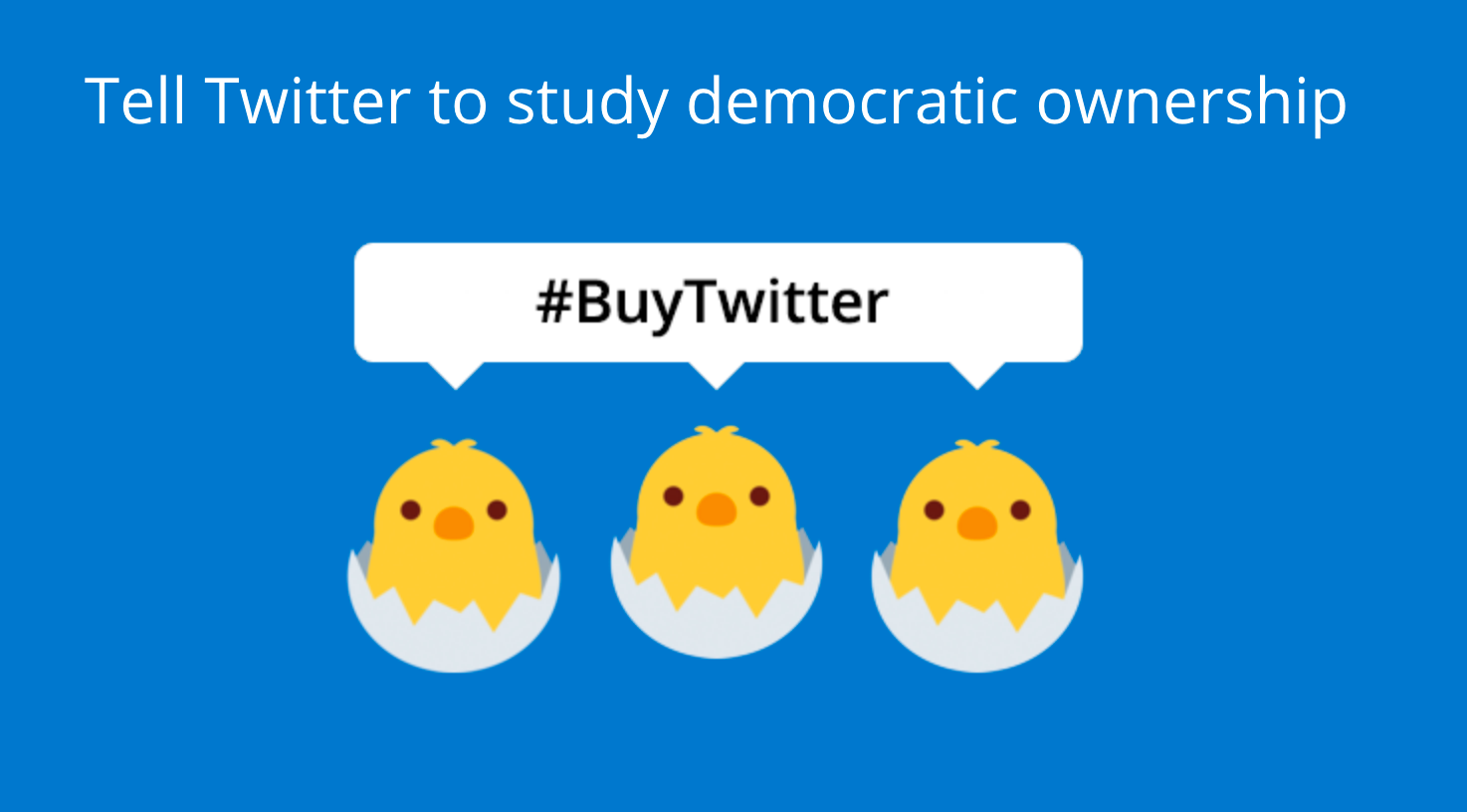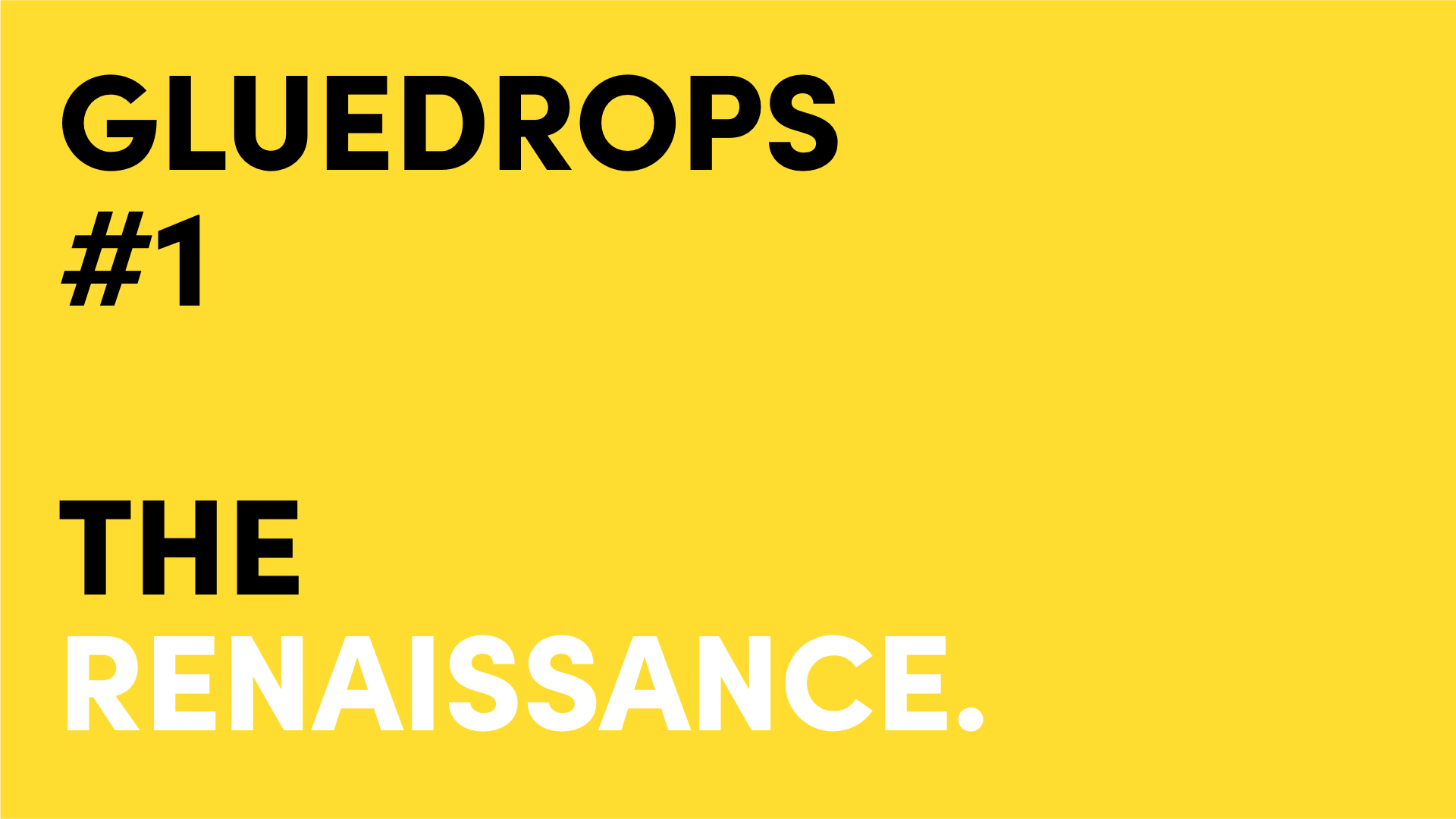Hello,
it is 2020 (the year of the metal rat) and I am sitting onboard a metal train to Copenhagen/Malmö. I could not think of a better place to start sending out what I call Gluedrops: a moving space on rails, linked up with the Cyberwebs. With Gluedrops I seek to connect the dots between culture, technology and business- one gluedrop at a time.
Every once in a while. Might be every six weeks, to be on the safe-side. Might be messy. For sure, I would like to keep it in an afternoon slow mood like Russell Davies. And definitely not the high-speed NYC spinning-class while blogging style of the yet brilliant daily Why is this interesting? It would be lovely to have you join a conversation with me through this newsletter.
It could begin like this:
Did you recognize that more and more long-established web platforms are getting a second chance? Yes, I mean the likes of Flickr and tumblr. Funny enough, they both share a history of being acquired by Yahoo, and Yahoo being acquired by Verizon/AOL (the irony!). So in a way, this Renaissance is also a tale about the drawbacks of venture capitalism.
Of course, we have seen similar efforts of rescuing legacy brands e.g. Impossible Project saving the Polaroid Instant Camera films. A special-interest topic to most, but very relevant to a worldwide group of instant photography enthusiasts.
Or BERG's fantastic Little Printer (VERY niche!) that got rescued by Nord Projects and "a group of Little Printer enthusiasts on GitHub". They turned it into an open-source messaging platform and got the device back to work.

Enthusiasm seems to be a big driver for this Renaissance. Getting the ship back on course. To sense a deeper meaning or potential in a product- or platform- that just needs to be trimmed back to its original purpose.
In 2017, the #BuyTwitter niche-movement tried to point into a similar direction: free the twitter platform from its management so that it could become a more respectful and civilized place - minus the critisized management and hate-users including the POTUS. We all know that this one did not happen- but luckily there are still a few success stories to tell.

Back to the recently reborns. Flickr became part of SmugMug, an "independent, family-run firm" (Guardian). They described the acquisition as:
"an opportunity to join together two communities and businesses that share the same values was one we couldn’t pass up."
– SmugMug website
Communities! Values! Enthusiasm! We're on to something. Frankly, I have been wondering why digital companies have for so long resented the notion of family business. Why run after the big fat exit when you can leave a legacy for the next generation?
In a Verge interview, Automattic CEO Matt Mullenweg argued that the regained independence would benefit Tumblr as a platform and community:
"As an independent company again, as part of an independent company, it (Tumblr) has the opportunity to be responsive, agile, and creator-centric in a way it might have been constrained in some ways since 2013."
The matter of scale seems to be important here- Matt hints towards a corporate environment that is by its sheer size unable to create culture that can produce a "creator-centric" product anymore. This would make a strong argument in favor of smaller businesses in web platforms.
In the same interview, Matt also made a strong point in favor of autonomy vs. algorithmic feed curation:
"What kind of experience people can create for themselves and really make it something where they choose what they follow? They’re not just being algorithmically pushed whatever is the most incendiary thing that might be in their feed."
One can sense a pretty clear critique on the values of big tech companies in this statement. Obiously, one that has luckily been brought up many times in the last few years, but without much of a change looking back at -again- the large-scale corporate systems. Maybe this change is slowly evolving in actions like the Tumblr or Flickr buy-back, almost as if you ripped off the respective arm from the octopus.
In this Renaissance, we might see a focus on values, purpose, direction that will in the end lead to a better service to the respective community. Also the product might have a bigger chance to improve.
What will be the next web platform to be reborn you'd ask? You might have heard that WeWork acquired a couple of companies in their acquisition spree. Including the Brooklyn based meetup in 2017. Meanwhile, WeWork has nosedived and already layed off employees at meetup, began "restructuring". This may be yet another example where venture capital values did not exactly match the indies, and a pumped-up growth story took down idealists at work.

This Renaissance signifies an actual moment. An opportunity to create alternatives to the current mainstream in digital. Remember: not all old platforms are crap. Not everything that has GAFA written all over it is per se the best-you-can-get as a user. As a community. As society.
Sometimes, rejecting the offer and staying aboard might lead to better results. My call to action: Dare to grow slowly! It might be worthwhile to re-focus on values (such as enthusiasm, respect or community), to take your purpose seriously and engage in a public debate on how to redefine value.
Thanks for reading!
– Matthias


